10 sleeping pad alternatives for car camping and backpacking
Our top 10 sleeping pad alternatives for car camping and backpacking cover all the bases, from ultra plush to down and dirty
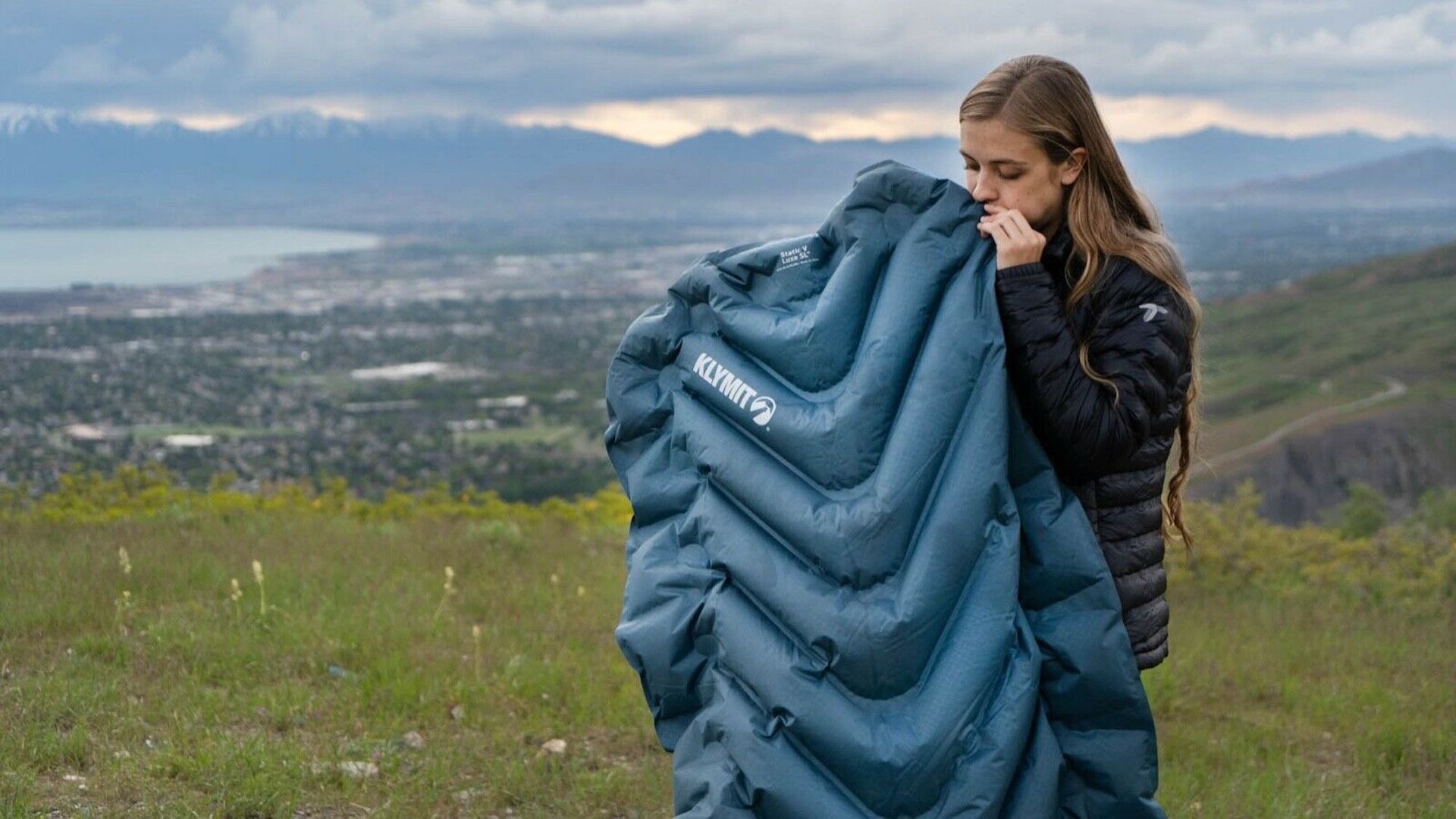
All the latest inspiration, tips and guides to help you plan your next Advnture!
You are now subscribed
Your newsletter sign-up was successful
As camping enthusiasts, we’re forever debating the various pros and cons of inflatable vs foam sleeping pads for our overnight trips in the wild. But what if you’re looking for something other than the best sleeping pad? There are lots of reasons to be looking for sleeping pad alternatives – perhaps you’ve got room in the trunk and you want more luxury than a two-inch mat can provide, or maybe you’re heading out on an epic trek and want to free up some room in your best backpack? Whatever your reason, our top 10 sleeping pad alternatives cover all the bases, from ultra plush to down and dirty.
We’ve divided our sleeping pad alternatives up into two categories – those which you really need a car to transport, and those that you can carry in a backpack. That said, of course you use any of these sleeping pad alternatives when you’re car camping, however the car camping-only options won’t work for backpacking. Read on to find out how to get the best night’s sleep on your next camping trip.
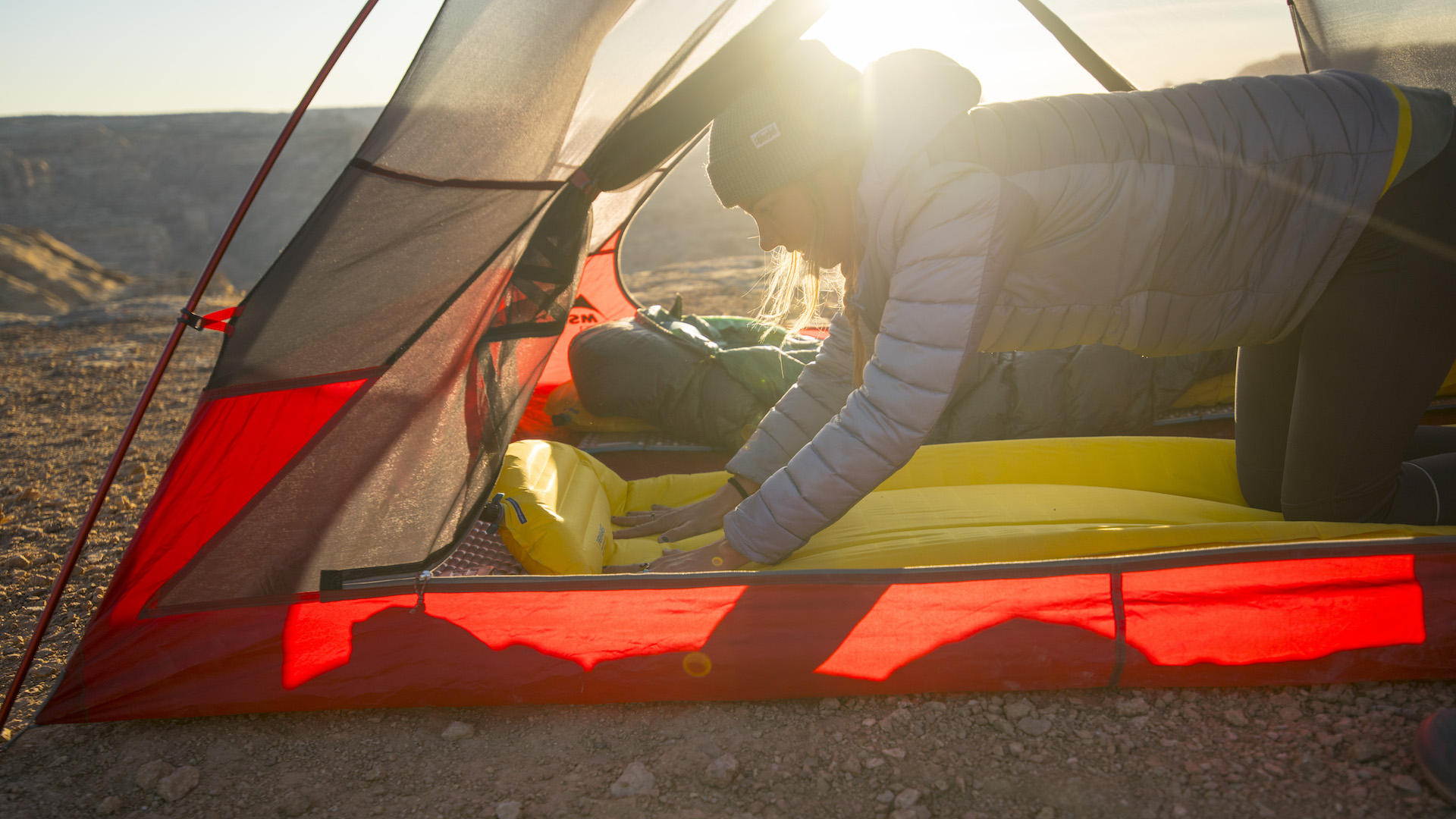
Sleeping pad alternatives for car camping
These sleeping pad alternatives don’t pack down small, but they compensate with lots of pillowy comfort. These are great for those who don’t want to sacrifice quality sleep for time spent under the stars.
Air mattress
Air mattresses are sort of a more robust cousin to the inflatable sleeping pad and are your most luxurious option if you’re looking to camp in comfort. Sturdier than a sleeping pad and usually requiring a pump to inflate, air mattresses come in both single and double sizes, and feel the most like your own bed at home. They take up more room than a sleeping pad, but not a massive amount of space. On the downside, they don’t provide insulation, anything inflatable always presents the possibility of punctures, and battery-operated pumps can pose a challenge too.
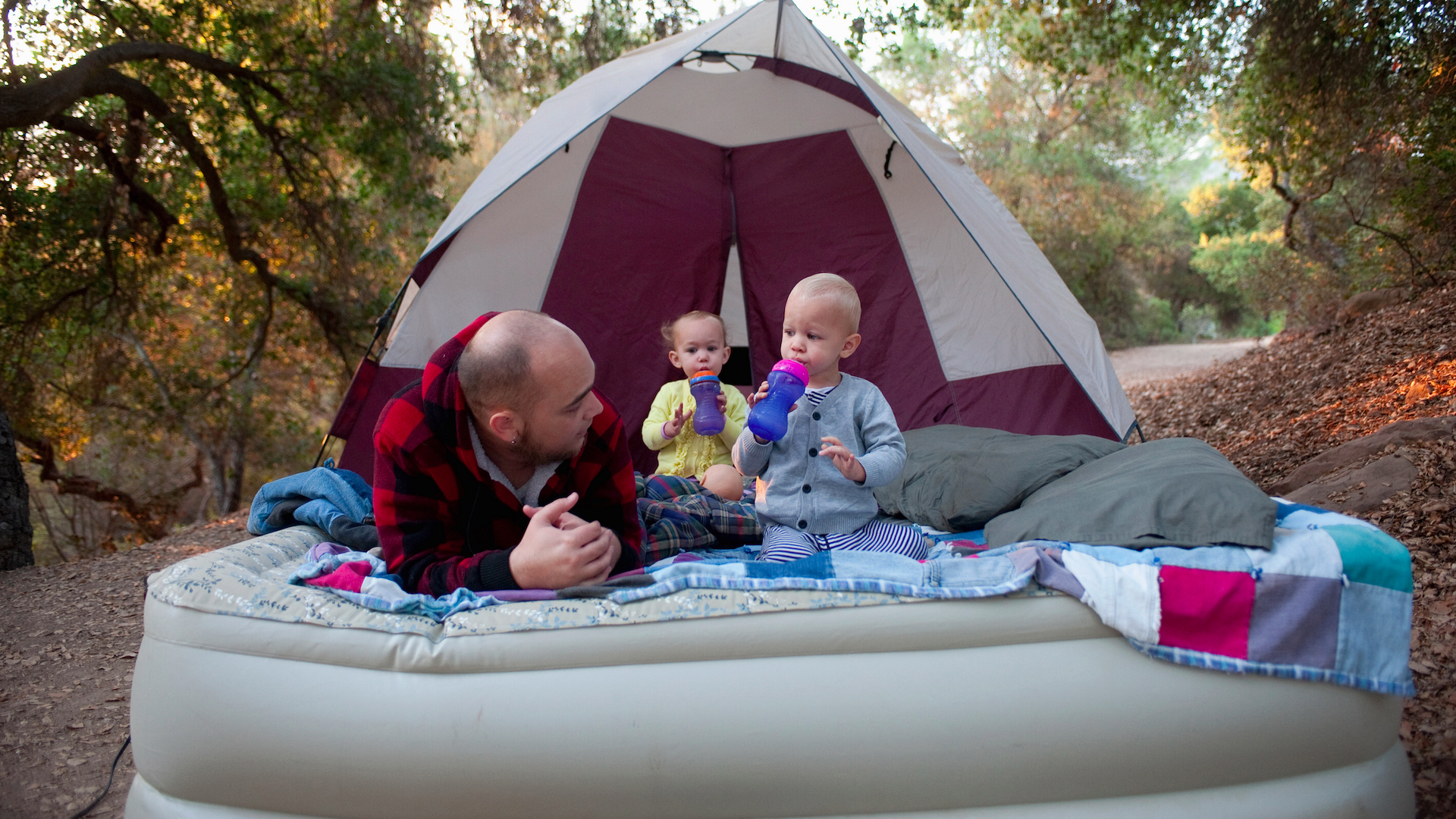
Camping cot
A camping cot, known as a camp bed in the UK, is a lightweight single bed made with a robust material like nylon or canvas stretched over a folding steel or aluminum frame that keeps you elevated off the ground. It looks a lot like a sun lounger that you lie on at the pool.
The main advantage of a camping cot is that it gets you up off the ground which keeps you warmer, and it’s comfier than a sleeping pad. They’re pretty durable and extremely easy to use – just unfold and lie down. On the other hand, they don’t pack down particularly small, although they’re easy enough to slide in between seats in your car, and they have a tendency to sag in the middle. Check out our comparison of camping cots vs air mattresses to get a feel for the differences between the two.
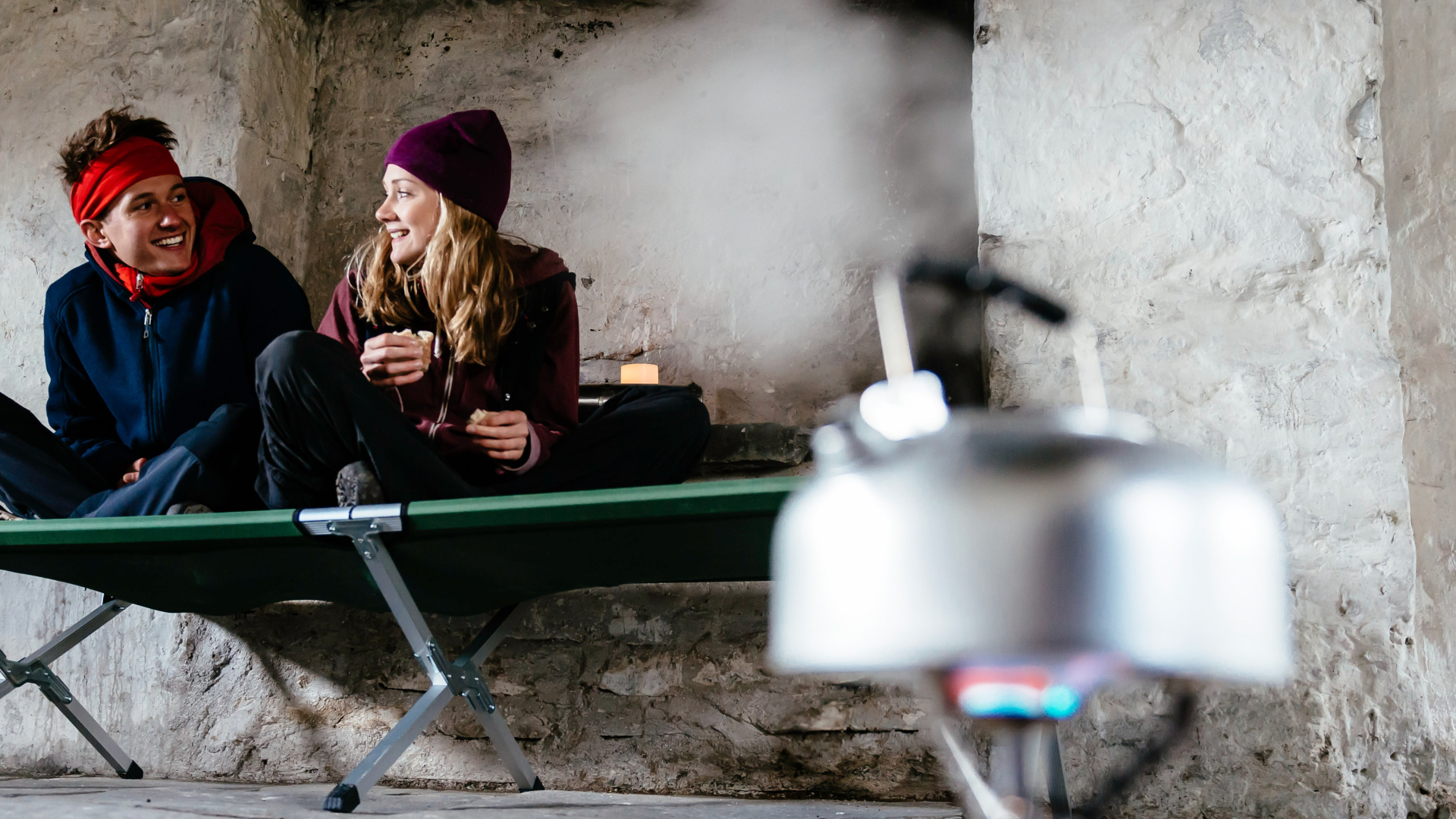
Mattress topper
If you already have a foam mattress topper on your mattress at home, you could potentially use it for car camping. It really needs to be at least four inches thick to really do the job, but a thick one can provide good comfort and some insulation. The downside of these is that they’re not really intended for outdoor use, meaning they won’t stand up well against damp conditions, and depending on how big yours is to begin with, it might not compress down very small. Plus, if you're planning on putting it back on your bed, you may not want to risk getting it dirty.
All the latest inspiration, tips and guides to help you plan your next Advnture!
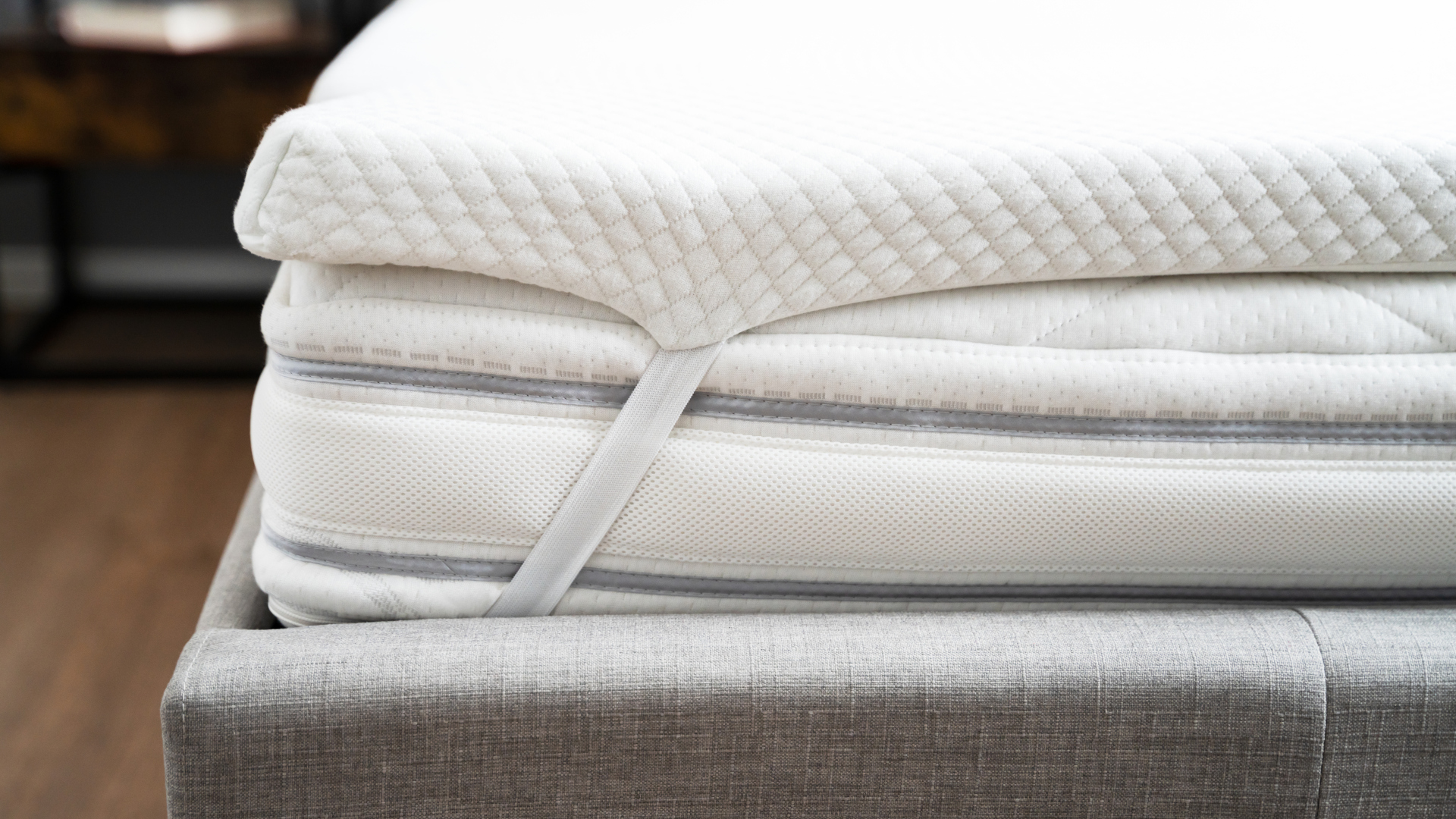
Paco pad
If you already spend your summers on white water, you’ll be intimately familiar with the amazing benefits of the Paco Pad. These PVC-enclosed foam pads are waterproof, insulated, packable, plush, and double as a comfy seat in your raft. The main argument against these is that they’re quite pricey (think upwards of $300/£300), but if you’re willing to fork over the cash, you can hardly find a better night’s sleep outdoors.
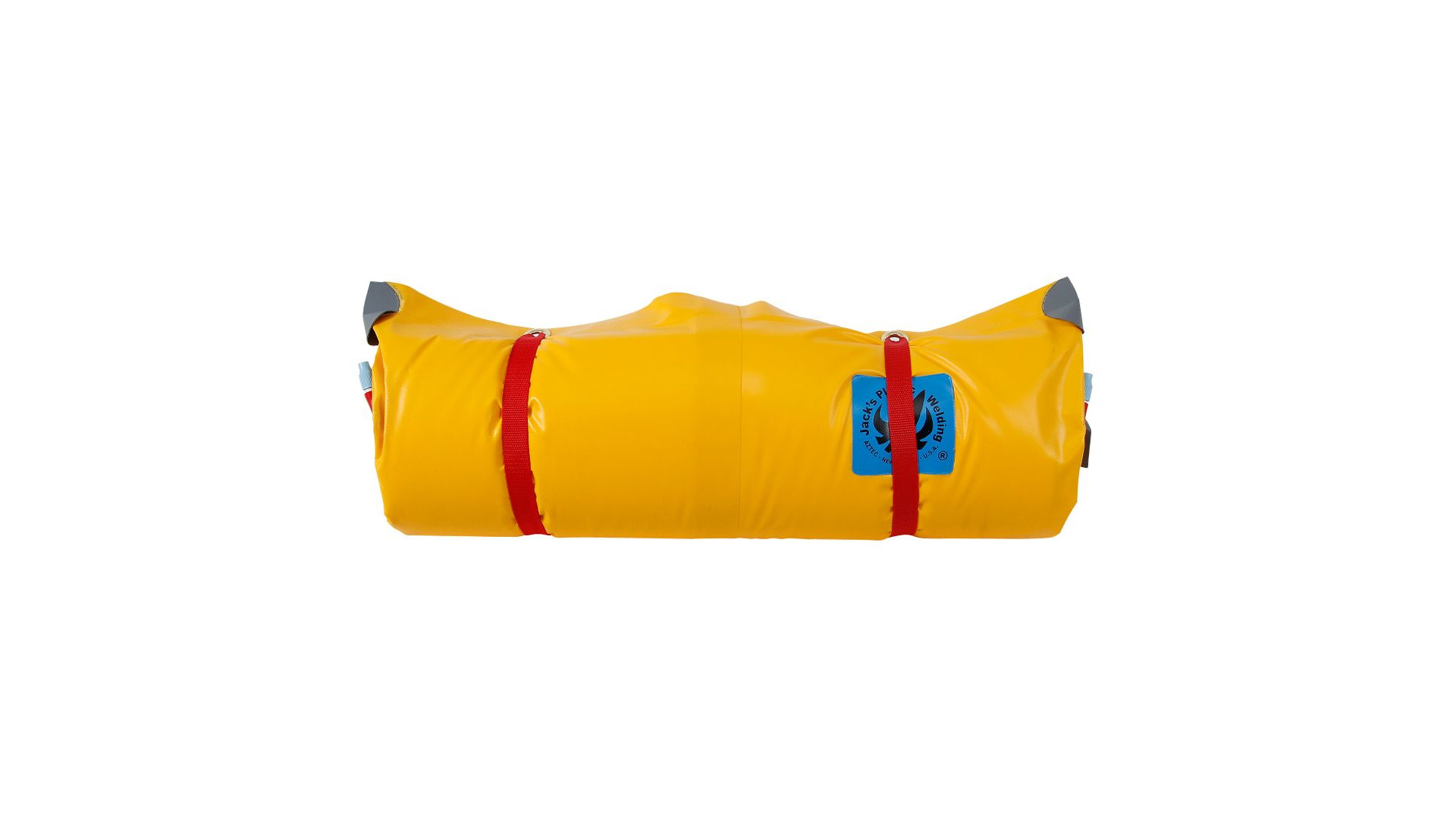
Sleeping pad alternatives for backpacking
Our sleeping pad alternatives for backpacking are a bit more rustic than those we’ve designated for car camping, but while they might not be as opulent, they’ll definitely fit inside your backpack during those long days on the trail and are great for those looking to save on space, weight or money.
Thick sleeping bag
If any of your best sleeping bags are filled with thick down that's too warm for summer camping, you can definitely use one of these to build a nice, soft nest. If you keep it zipped up, you’ve got double the thickness and of course, this is going to be one of the warmest options available, and reasonably packable too. The only real drawbacks we can think of are that, zipped up, it doesn't provide a huge surface area and sleeping with another bag on top might be quite a slippery experience.
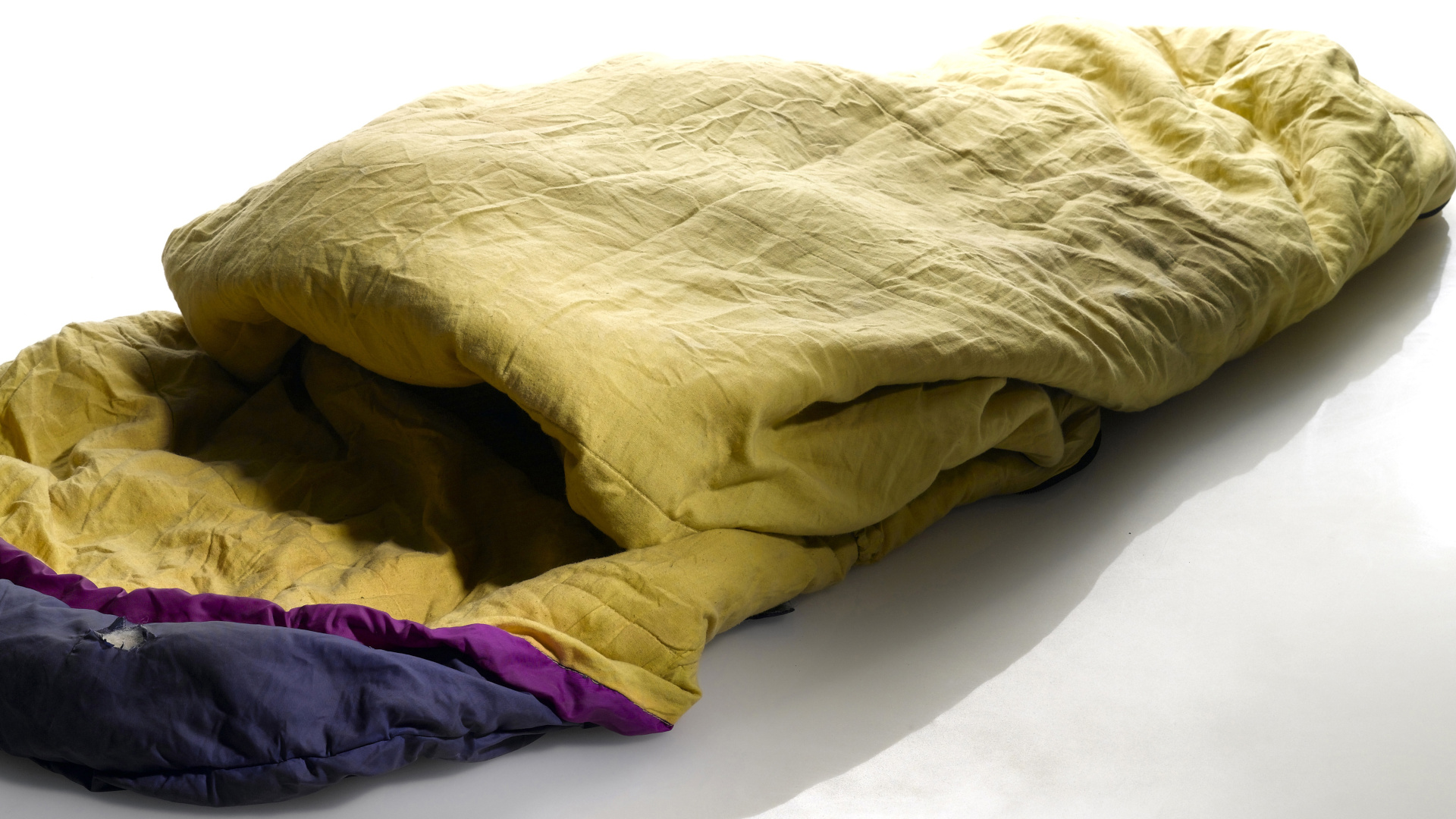
Hammock
For a true al fresco sleeping experience in mild temperatures, you can use your best hammock for sleeping in. Lots of backpackers love the freedom of swinging gently between two trees, far away from the creepy crawlies down below. Hammocks pack down smaller than anything else on your list and can even be clipped to your backpack using a carabiner.
However, while hammocks do sometimes come with bells and whistles like mosquito netting, they don’t offer any insulation or protection from the elements – since you won’t be in your best tent, you’ll need to save this for fair weather camping only. You'll also want to read up on how to use a hammock to make sure you're safe as well as comfortable.
Yoga/pilates/gym mat
If you have a thick mat that you use for stretching and exercise at home, you’ve probably noticed it resembles a foam camping pad and if you don’t mind getting it grubby, you can roll it up, attach it to your backpack and use it for backpacking no problem. These are cheap, light, pretty durable and reasonably weather proof, and will offer some comfort and insulation too. Plus, you'll have everything you need to enjoy our yoga for backpackers sequence!
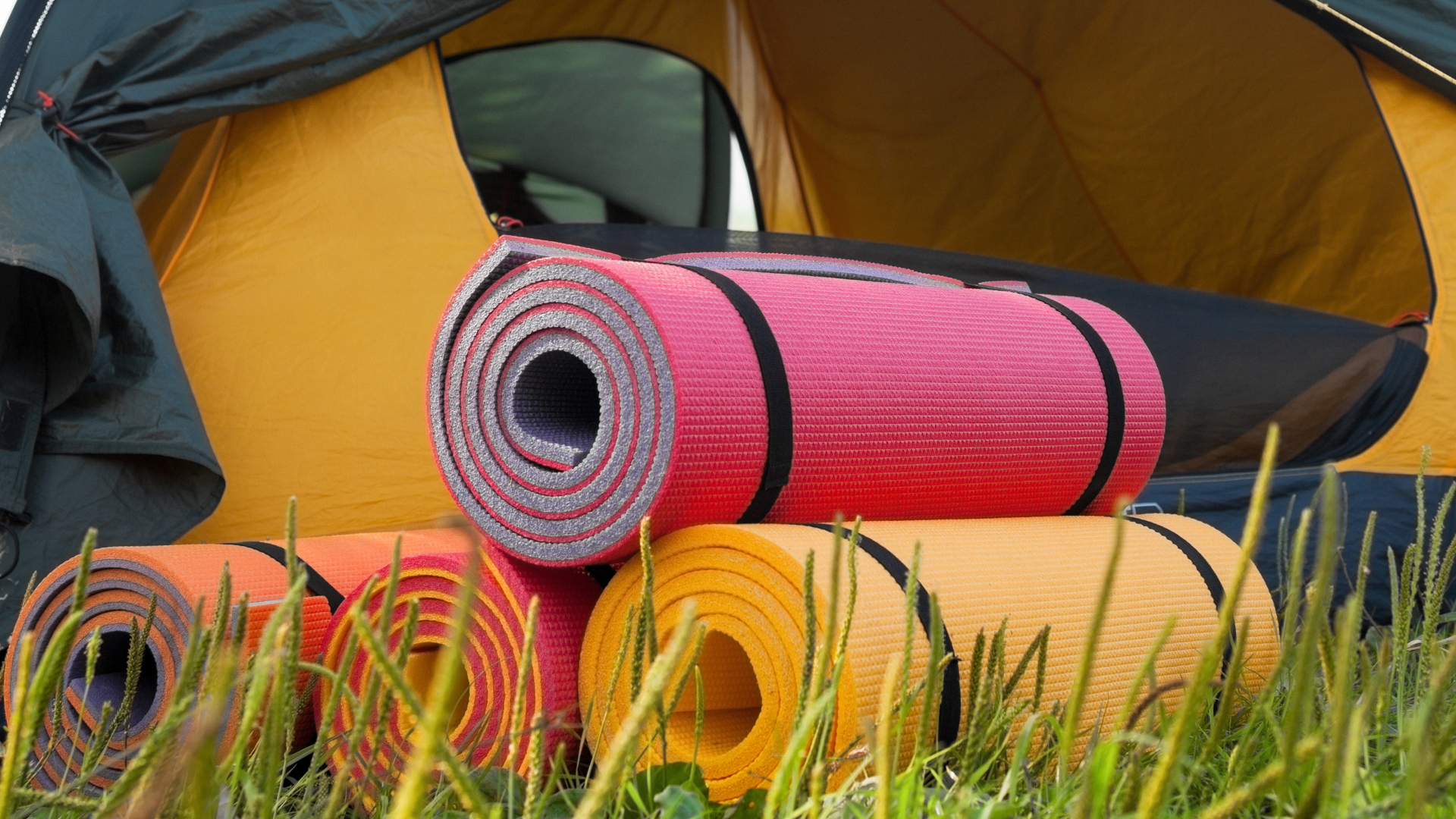
Camping blanket
If you’re not using your best camping blanket as an actual blanket, you could fold it in half for a little padding in a pinch. You’ll get some insulating power from a wool blanket and it’s a versatile piece of kit, meaning you can use it for picnics, a camping pillow and a seat, too. It’s certainly another affordable option and if you’re not carrying a sleeping pad, there’s no reason why you can’t fit one in your pack. That said, unless it’s thick it won’t offer a load of comfort, and if it gets wet, wool will be heavy and slow to dry, so pack it in plastic.
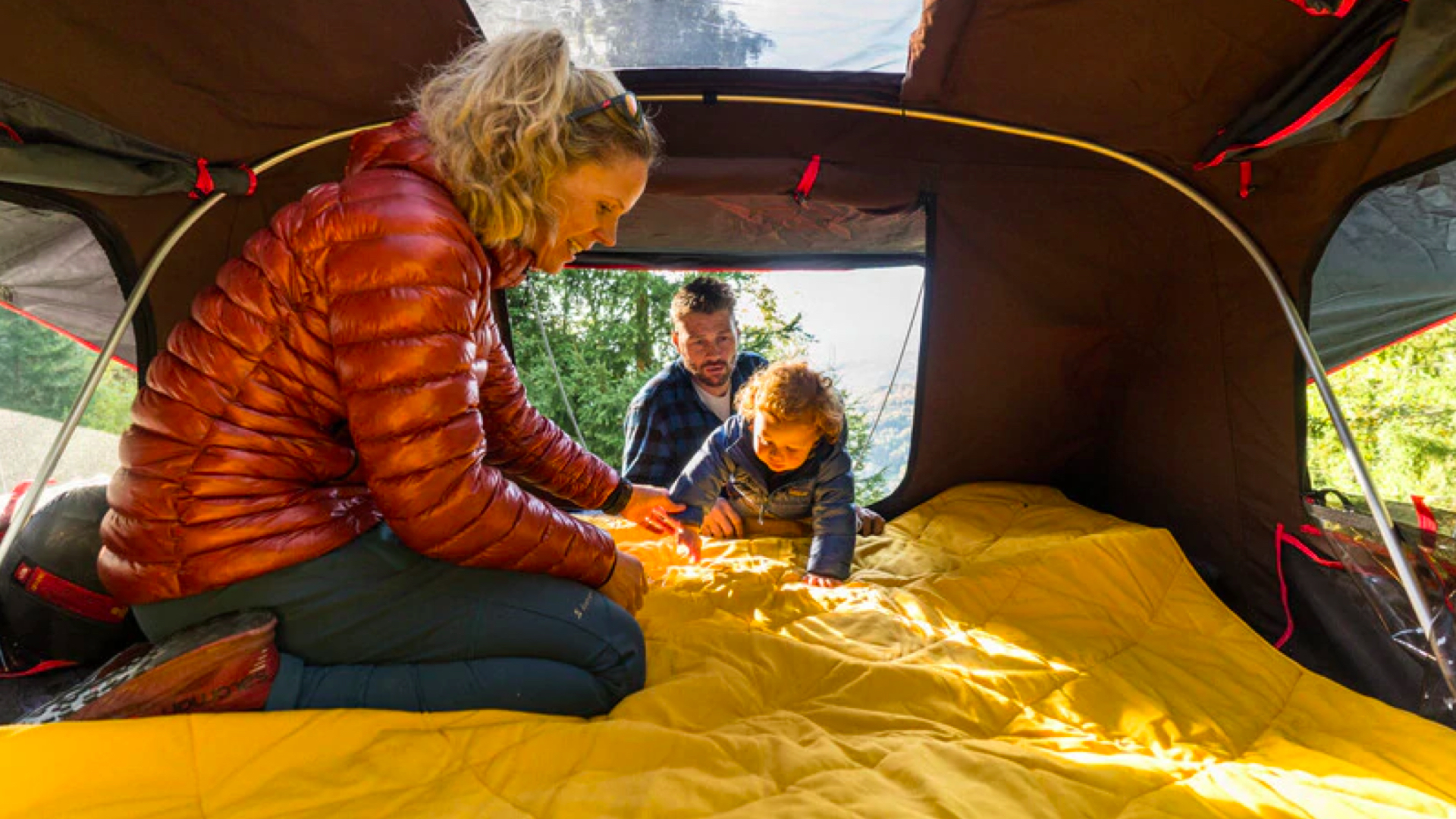
Pool raft (lilo)
If you’ve ever thought that inflatable sleeping pads look like really expensive swimming pool rafts (known as lilos in the UK), you’re not totally wrong. While your pool raft might not be as sturdy as a good sleeping pad, you can definitely use it in a pinch, or if you’re not a regular camper looking to invest in gear. These can be pretty lightweight and packable, and are usually inflated by mouth so you don’t have to carry a pump. That said, they’re not really meant for heavy use so punctures happen easily (carry a repair kit) and definitely don’t bring one shaped like a unicorn or a flamingo – it won’t fit inside your tent.
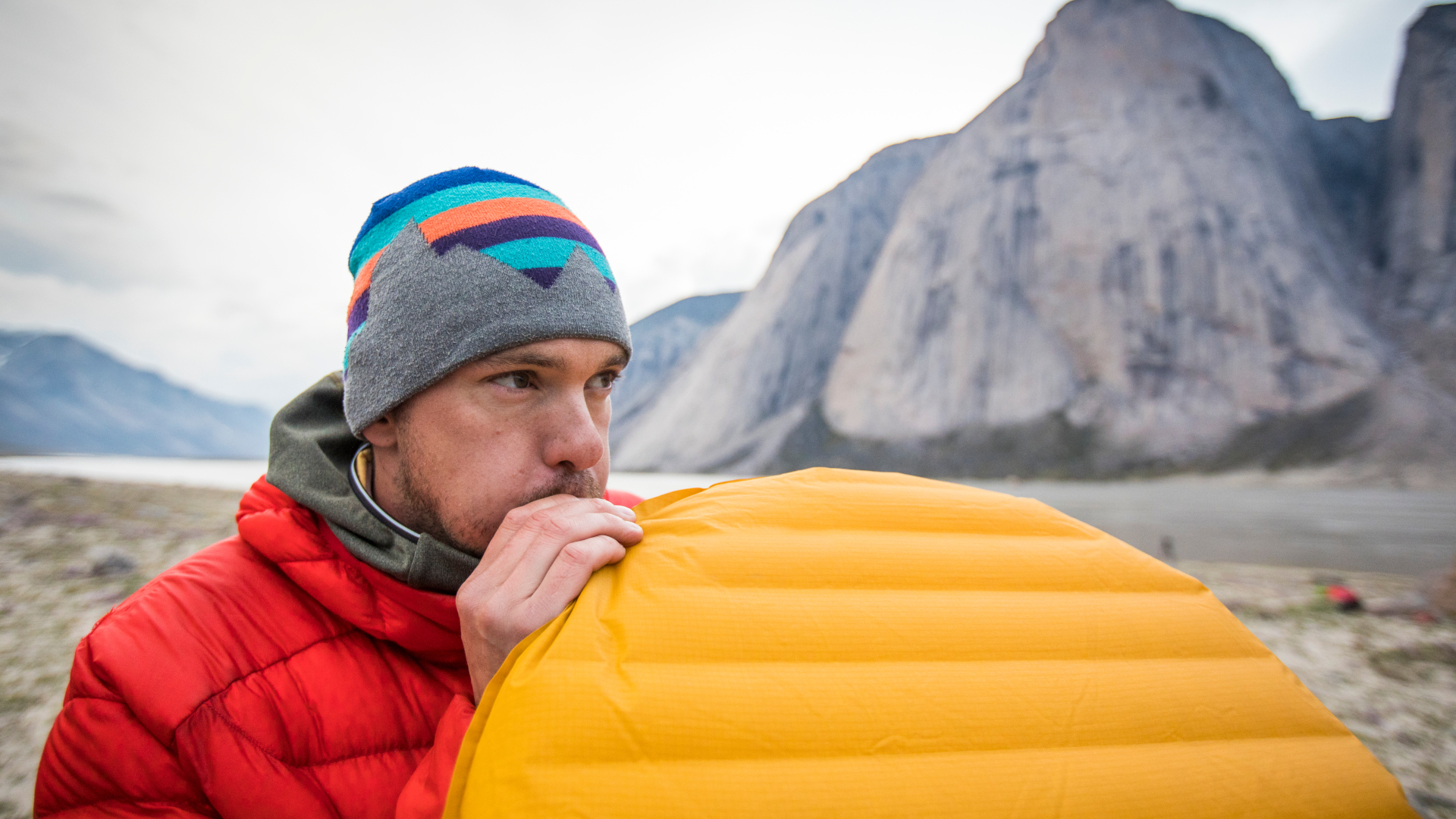
Pile of leaves
Want to get really old school? If you’re camping in the fall, you can gather up the leaves into a pile and then pitch your tent on top of the leaves. You’ll be amazed at how much cushion this can provide. With no cost and no space needed in your pack, it’s a great option for thrifty and ultralight campers, but obviously you’re looking at a bit of a lumpier sleeping surface, possibly filled with sharp twigs, and if there aren’t any leaves around, you’re in trouble.
- How to repair a sleeping bag: patching holes and fixing zippers
Julia Clarke is a staff writer for Advnture.com and the author of the book Restorative Yoga for Beginners. She loves to explore mountains on foot, bike, skis and belay and then recover on the the yoga mat. Julia graduated with a degree in journalism in 2004 and spent eight years working as a radio presenter in Kansas City, Vermont, Boston and New York City before discovering the joys of the Rocky Mountains. She then detoured west to Colorado and enjoyed 11 years teaching yoga in Vail before returning to her hometown of Glasgow, Scotland in 2020 to focus on family and writing.

